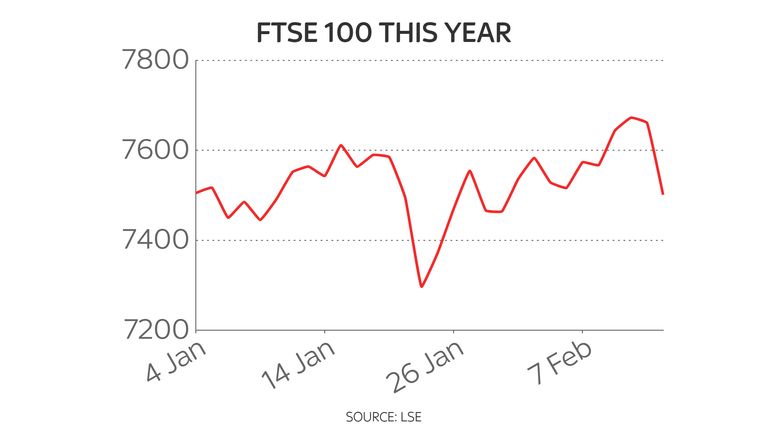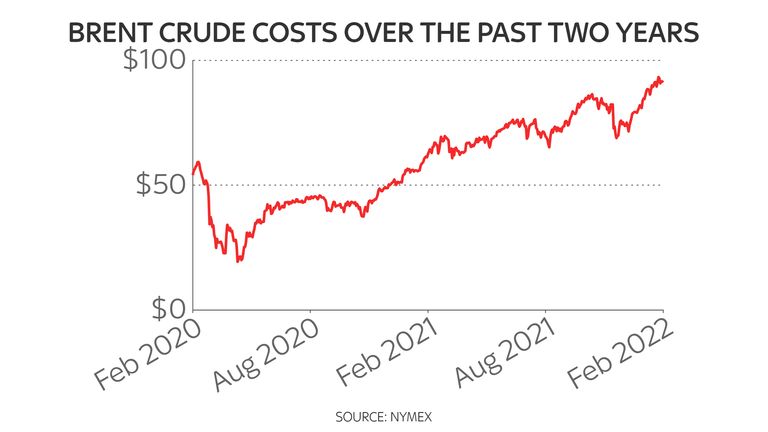Energy costs surge as global markets are rattled over fears of Russian invasion of Ukraine
Markets around the world have been rattled by fears that a Russian invasion of Ukraine could be imminent, dealing a further blow to investors already nervous about rising inflation.
European indexes, including the UK’s FTSE 100, Germany’s Dax and France’s CAC 40, all fell several percentage points at the open – with the US markets later joining them in negative territory.
Companies with exposure to eastern Europe, travel firms, and banks were among those hardest hit.
IAG, the parent firm of British Airways, was down more than 6% in London amid jitters over the prospect of conflict in Europe and what that could mean for airspace after KLM suspended flights to Ukraine as a precaution.
Britain’s armed forces minister told Sky News he was worried an invasion of Ukraine could happen soon.
“My fear is it is very imminent, that’s not to say it’s definitely going to happen,” said James Heappey.
Brent crude oil prices hit their highest level in more than seven years over concerns that a conflict involving Russia could disrupt fuel supplies from one of the world’s top producers.
The move upwards risks further hikes to fuel costs, which were revealed on Monday to have hit new heights in the UK over the weekend.
Natural gas costs were also on the move, with contracts for March delivery up by more than 4%.
Higher energy prices globally have already been a core reason behind the surge in UK inflation to a 30-year high.
Brent crude, the European oil benchmark, hit a peak of $96.16 early on Monday, its highest level since October 2014, after rising steadily for several consecutive weeks but later settled around $95 in volatile trading.
If Russia does invade Ukraine, “Brent crude won’t have any trouble rallying above the $100 level”, according to OANDA analyst Edward Moya.
“Oil prices will remain extremely volatile and sensitive to incremental updates regarding the Ukraine situation,” he added.
Investors sought safety in government bonds, gold and the dollar instead.
UK two-year gilt yields, for example, were at their highest level since 2011.
The FTSE 100, Britain’s leading share index, closed 1.7% down. Bank stocks were among the main losers with Barclays, NatWest and Lloyds all down by more than 4%.
The equivalent indexes in France and Germany – which dropped by more than 3% earlier in the day – closed more than 2% lower.
“Global market sentiment has a decidedly fragile feel to it”, Simon Ballard, chief economist at First Abu Dhabi Bank, said.
“The Russian roulette situation continues to evolve over Ukraine.
“Combined with already heightened unease over elevated inflation and the spectre of aggressive monetary tightening, we are now we are left on the defensive.”




